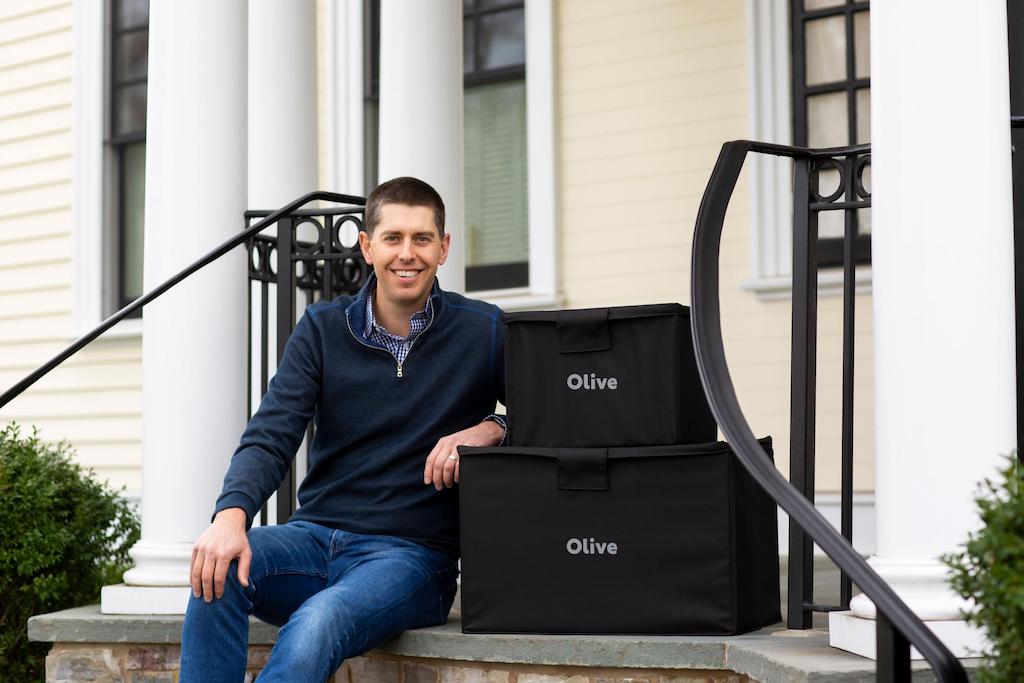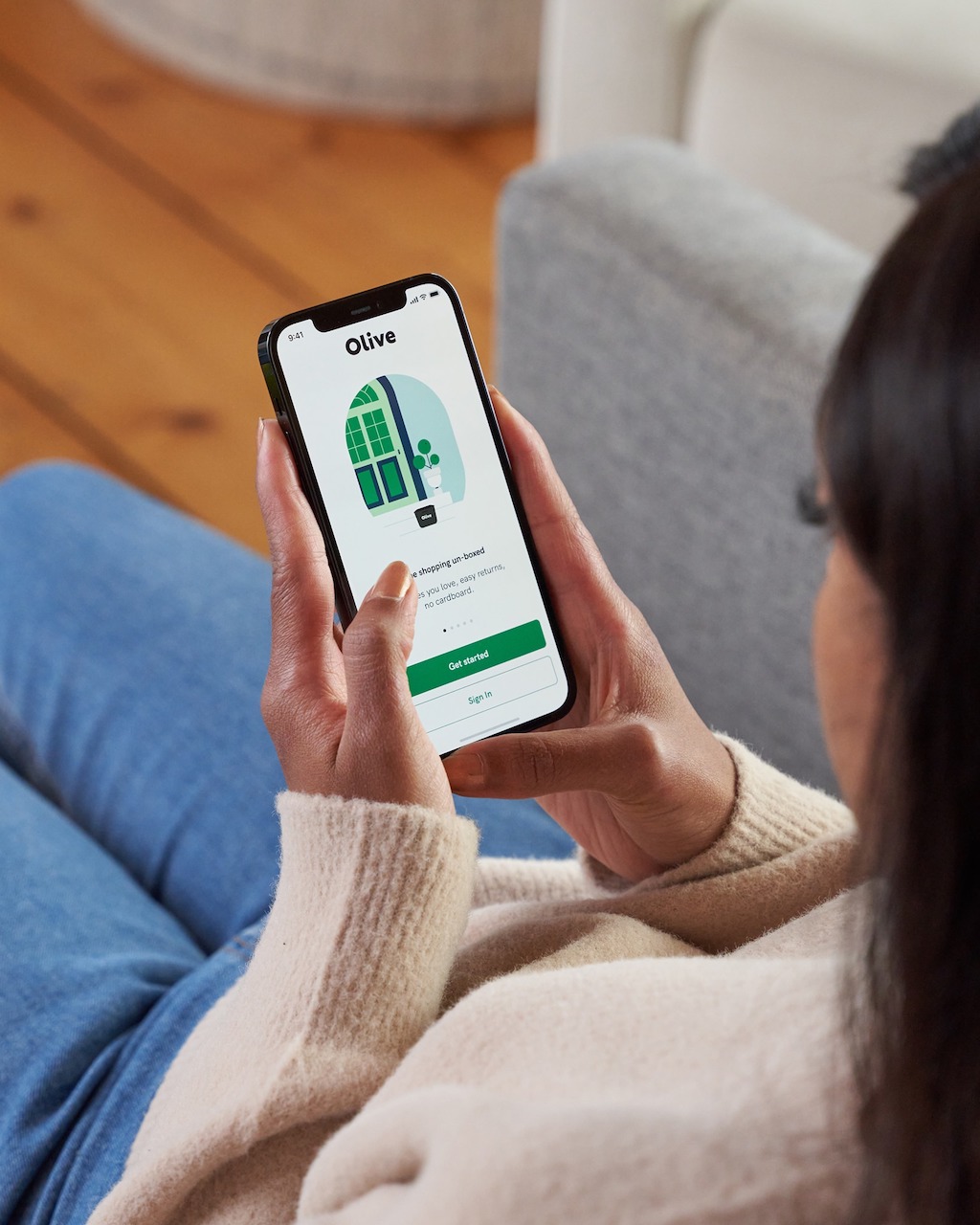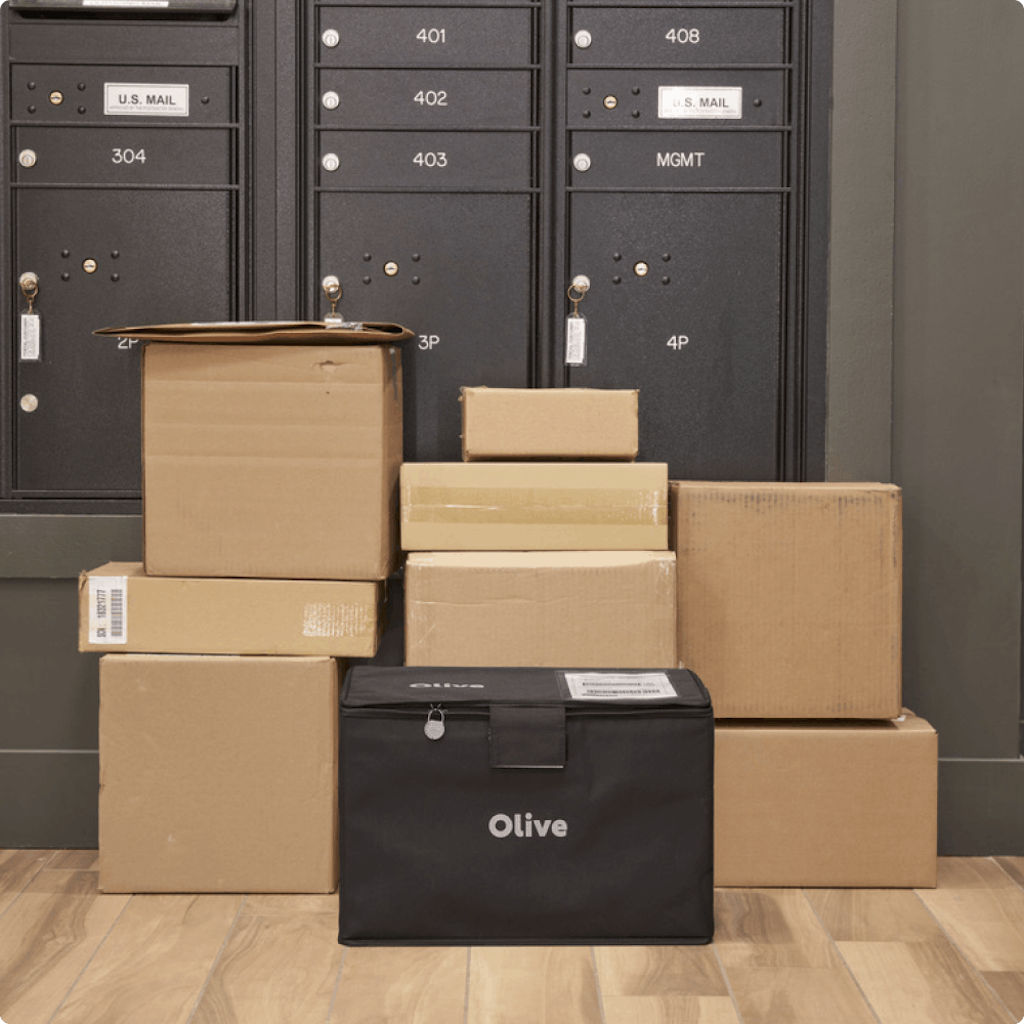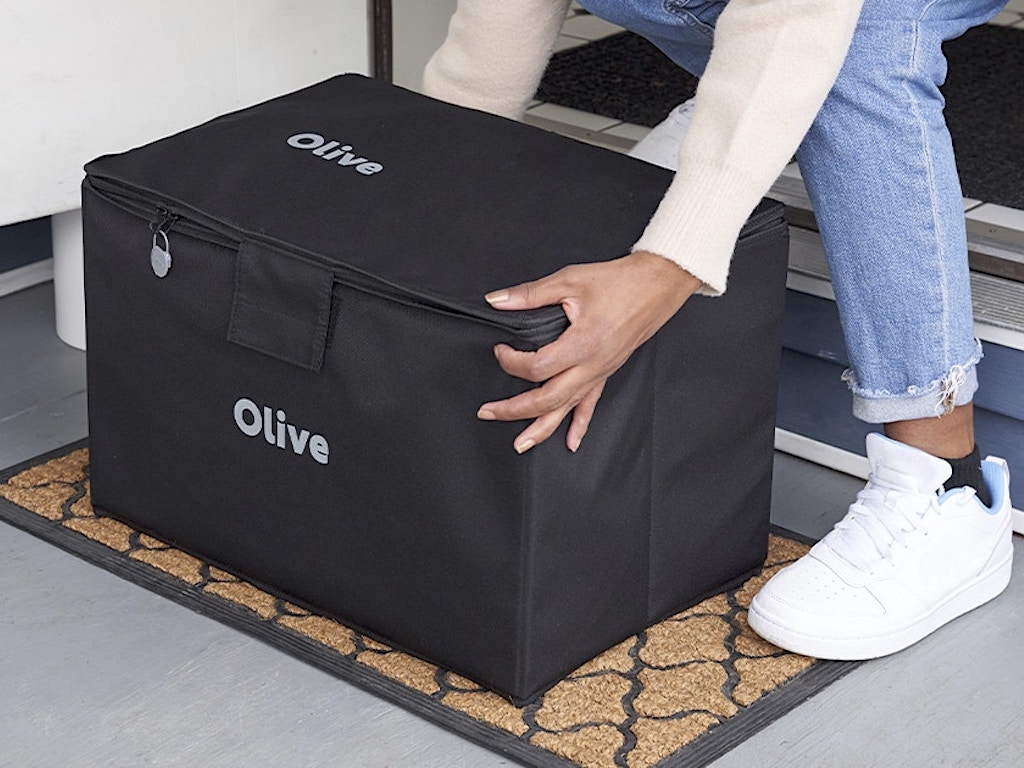4 Mins Read
Love online shopping, hate the waste? After almost a quarter of a century of e-commerce, you’d think there would be a solution to the mounting piles of cardboard boxes, plastic bubble wrap and sticky tape that even the smallest fashion haul creates. Enter Olive, the new circular startup that’s here to solve this environmental conundrum.
Olive wants to “unbox” every shipment that arrives at your door. On the face of it, the mission sounds simple, but e-commerce has ballooned into an enormous industry over the past 25 years, and especially in our pandemic-stricken world where all of us seem to be ordering our products online more than ever before.
So much of our shopping is happening online that global e-retail sales are expected to top a whopping US$4.8 trillion by 2021. And as that figure continues to rise, so does the emissions and waste associated with all those orders.

Americans now break down over 10 billion cardboard boxes each year.
Nate Faust, Founder, Olive
“One evening, after breaking down a week’s worth of delivery boxes and dragging them outside, I looked around and realised that everyone’s trash situation was identical,” said Nate Faust, founder of Olive.
“Americans now break down over 10 billion cardboard boxes each year. An even bigger environmental issue is the delivery itself – with nearly every package delivered one-at-a-time to consumers’ doorsteps, plus our own trips to the post office for returns, our carbon footprint from e-commerce continues to climb.”
Faust, a veteran of the online shopping industry – having formerly headed Walmart’s U.S. e-commerce supply chain and co-founded Jet.com – decided to do something about this. He called his new circular shipping venture Olive because he wanted the “hint of green to come through in the brand.”
“We liked Olive the best. Shop green; shop Olive,” he told Refinery29.

How exactly Olive works is pretty simple for the consumer – the entire process is designed to be convenient and seamless. Once they’re signed up (it’s free, by the way), users on the platform’s browser extension or mobile app will get a pop-up notification to let them know if they’re shopping on an affiliated retailer that has partnered with Olive.
At checkout, shoppers will get the choice to accept their automatic “Olive address” – their nearest distribution hub where their chosen partnered retailers’ products are consolidated and sent out in reusable cardboard-free “shippers” and delivered to customers on a weekly basis. If you want to return an item, all you have to do is leave it inside the shipper, and request a pickup from Olive. It’s literally that simple.
We’re significantly reducing last-mile emissions.
Olive
Behind the service it is a lot of work. On top of the technology behind its digital platform, Olive runs warehouses to combine the multiple orders you make from different retailers and sites, all in the name of sustainability. That means fewer mail carrier trips, fewer carbon emissions, and fewer individual cardboard boxes, plastic bags, bubble wrap, and so on.

The reusable bag – the shippers – were also designed to be as sustainable as possible, made from recycled plastic bottles, pallets, cups and polyester, the plastic-derived material often found in our clothing. It’s then finished in an antimicrobial finish developed by chemical giant Dupont, to ensure that even as the shipper gets used and reused again, it stays clean.
“We’re significantly reducing last-mile emissions,” the Olive website proudly claims, noting that simply doubling the number of average items in a single delivery can equate to a 30% reduction in per-item emissions. “One day, we aim to completely eliminate single-use packaging.”
And to answer the one question that online shopping fanatics must be wondering – yes, pretty much all your favourite brands are affiliated with Olive. Right now, there are hundreds working with the circular delivery platform, from sportswear and athleisure labels like Adidas, Alo and Columbia, to upmarket designer brands like Rag & Bone, Rebecca Minkoff, Steve Madden and Stuart Weitzman.

One day, we aim to completely eliminate single-use packaging.
Olive
Right now, Olive works mostly with the fashion industry and the service is limited to shoppers in the U.S., but the startup has bold plans to keep expanding as its membership grows. And current trends are any indication, it’s become increasingly clear that conscious consumers are going nowhere.
They’re willing to ditch unsustainable brands for value-aligned ones more so than ever before, and choosing rental, resale and reuse, putting greater pressure on companies to begin integrating these circular models into their business. Already, other circular packaging startups like Loop are now making headlines with big name companies like McDonald’s, Tesco and Burger King to make sustainable inroads in the grocery and foodservice arena.
“We believe that big impact starts with small steps,” the Olive website states. “Here’s to your doorstep sparking joy, not waste.”
All images courtesy of Olive.




